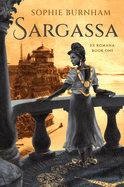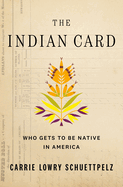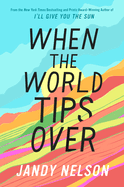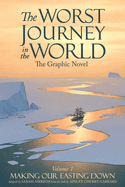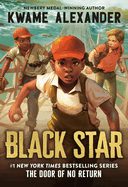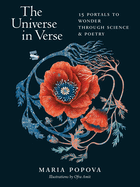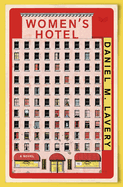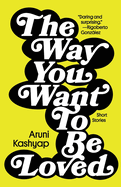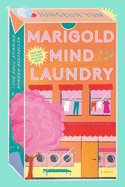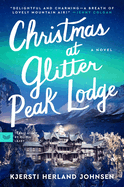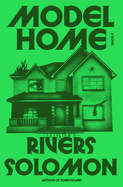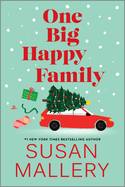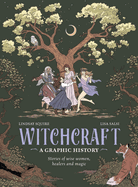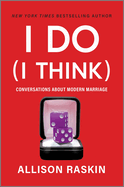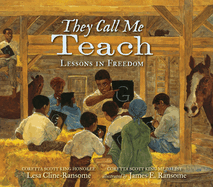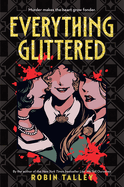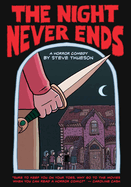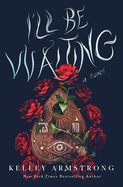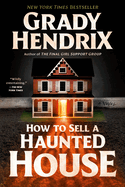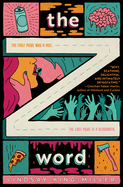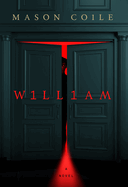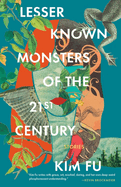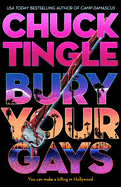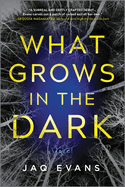Friday, October 25, 2024
Among the outstanding books featured in today's issue, we take a closer look at The Indian Card: Who Gets to Be Native in America by Carrie Lowry Schuettpelz, a wry, frank, and funny examination of Native American identity and public policy that blends history, social science, and memoir; as well as The Universe in Verse: 15 Portals to Wonder Through Science & Poetry by Maria Popova, a slim, luminous essay collection about scientists, their discoveries, and how the wonders therein can provide instruments for knowing the world more intimately and loving it more deeply. Plus, Jandy Nelson's new YA family saga, When the World Tips Over, is a sumptuous example of fabulim about a multi-generational family curse and a mysterious rainbow-haired stranger.
Meanwhile, acclaimed essayist Daniel Lavery brings his quick wit and thoughtful perspective to The Writer's Life, as he considers the memorable array of financially independent women who reside in the titular Women's Hotel of his first novel.
Sargassa
by Sophie Burnham
What if the Roman Empire survived and colonized the Americas? The alternate history underlying Sophie Burnham's Sargassa provides an elevated stage for a riveting, character-driven series opener filled with political intrigue, revolution, and romance.
Burnham brings to life a diverse cast: Selah, a well-meaning but oblivious patrician daughter; Theo, a scrappy nonbinary blade of the revolutionaries; Arran, a soulful outcast son struggling to find his place in a world that rejects him; and Tair, a bright young woman whose potential is squandered in enslavement. When Selah and Arran's father is assassinated, it sets off a cascade of events that will re-form their understanding of the world they live in and threaten its foundations. The four characters converge in a firework display of friendship, conflict, and queer romance.
Burnham's skillful prose depicts visceral character struggles, as when Selah has a moment of self-awareness: "She repeats these things back to herself, forcing herself to believe them, these truths belonging to the arrogant girl she could have been in another life."
Sargassa is a masterclass in world-building, with its realistic politics, complex and brutal caste system, and gorgeous settings. It takes time to get the lay of the land, but the payoff is worth the effort. The expansive scope multiplies the emotional and conceptual weight of the narrative.
Burnham explores hefty questions: Who's culpable for injustice in a broken system? Can humanity ever be trusted with power? And if knowledge is power, what are the implications of sharing or withholding information? Sargassa co-opts familiar tropes to deliver substantive ideas in a compelling debut. --Carol Caley, writer
Discover: This riveting, character-driven novel of political intrigue, revolution, and romance is set in a world that explores the question: What if the Roman Empire survived and colonized the Americas?
Women's Hotel
by Daniel M. Lavery
In Daniel M. Lavery's Women's Hotel, the Biedermeier, "which even in the grand old Art Deco days had failed to come out on the right side of the glamour line," is as much a character as the women who have made a home in her rooms. There's plain first-floor director Katherine, with her wholly unexpected past, and the beautiful Gia Kassab (third floor) with her "disarming honesty and singleness of purpose." Gia arrives with a fierce determination to marry the much older Douglas Burgess, an editor who once dated her mother. There's Kitty (first floor), who can "make the slightest inconveniences seem like a ruinous series of disasters," and the Society of Friends (11th floor): Carol, Patricia, and Sadie, a trio of artists whose overstuffed suite contrasts with the austere minimalism otherwise embraced.
With characteristic wit and a singular intelligence, Lavery (Something That May Shock and Discredit You) builds a thoroughly impressive first novel out of these women and their stories. On its face, each woman's small, tenuous life may seem insignificant, failing to make any lasting mark on the city she hopes to conquer; however, what Lavery's brilliant (and often very funny) book insists is that each woman's individual experience has value. Similarly, Lavery's cheeky author's note asserts the insignificance of women's hotels, which "sparked no consequent movement and left behind no organized legacy," but the novel itself undermines that insistence, proving the untold worth of these temporary havens, which offered women a blend of privacy and communal living and a refuge from any number of less-preferable situations. Readers will want to move right in. --Sara Beth West, freelance reviewer and librarian
Discover: Each room of Daniel M. Lavery's Women's Hotel is occupied by delightful characters, startling insights, and a healthy dose of wry humor. Readers will want to move right in.
The Way You Want to Be Loved
by Aruni Kashyap
Aruni Kashyap's The Way You Want to Be Loved is a gorgeously spare exploration of the complexities of identity. Kashyap's prose is restrained, expressive, and unflinching, capable of capturing the delicate nuances of human emotion and the brutality of injustice.
The stories in this collection are united by the experience of marginalization, which is reflected in titles such as "Nafisa Ali's Life, Love, and Friendships Before and After the Muslim Ban" and "The Love Lives of People Who Look Like Kal Penn." Kashyap deftly portrays the everyday violence of othering and the subtle and overt ways in which individuals are made to feel excluded, inferior, or forced to confront the challenges of belonging in a world that often seems hostile to their very existence.
Kashyap's writing exhibits a remarkable sensitivity to human suffering. He is able to convey the quiet distress of his characters with unsparing, pessimistic tenderness, as in these lines from "Bizi Colony": "By the time my parents sent me away from Assam to New Delhi for further studies, Bablu had turned into a crackling fire that refused to be doused, demanding to be fed with wood, oil, fat, tears. Each of us took turns to let it feed upon us."
The Indian diaspora is a central subject in Kashyap's work. His stories often feature characters who have been uprooted from their homeland and must navigate living between cultures, revealing the ways in which displacement can shape a person's sense of self and their relationship to the world. The stories in The Way You Want to Be Loved are emotionally devastating, deeply moving, and thought provoking. --Elizabeth DeNoma, executive editor, DeNoma Literary Services, Seattle, Wash.
Discover: This searing collection of emotionally devastating stories that are united by the experience of marginalization is deeply moving and thought provoking.
Marigold Mind Laundry
by Jungeun Yun, transl. by Shanna Tan
Residents of a charming seaside village are stunned by a building that magically "blossomed into existence" in Jungeun Yun's whimsical Marigold Mind Laundry. Translated from the Korean by Shanna Tan, Yun's novel gracefully probes themes of emotional healing and the pursuit of contentment in a tender story that will captivate new and veteran fans of fantastical Korean literature.
Jieun is a beautiful, ethereal woman enveloped in a veil of sadness who travels across centuries, searching in vain for the beloved parents from whom she accidentally separated many lifetimes ago. She is gifted with the power to heal and make wishes come true, but for her own part, Jieun is trapped in an endless cycle of rebirth and despair over her loss.
After entering her latest life in the picturesque seaside village of Marigold, Jieun conjures up a hilltop laundromat, "a space where stains of the heart would be removed," "painful memories" erased, and "the creases in people's feelings" ironed out. Marigold's residents are fascinated by the laundromat's charismatic owner, her delicious healing tea, and the vibrant flowers that swirl around her.
Jieun helps a filmmaker erase distressing childhood trauma and an unhappy celebrity influencer build a new life. In the laundromat sanctuary she creates, friendships bloom, as does romance, and Jieun dares to consider a future and purpose beyond her elusive goal of reuniting with her parents.
Against the Marigold's fiery sunsets, Yun's characters embrace new beginnings and relinquish lost dreams in an uplifting, entertaining story that's sure to invite warm self-reflection. --Shahina Piyarali
Discover: A magical laundromat for the heart and mind blossoms into existence in this tender and entertaining Korean fantasy that explores themes of emotional healing and the pursuit of contentment.
Christmas at Glitter Peak Lodge
by Kjersti Herland Johnsen, transl. by Olivia Lasky
Kjersti Herland Johnson's gentle romantic mystery Christmas at Glitter Peak Lodge is her first novel published in English and has been adroitly translated from the Norwegian by Olivia Lasky. It's been a year since Ingrid Berg nearly died in an avalanche during a climbing trip. She still has nightmares about it as she slowly recovers in her childhood home, the Glitter Peak Lodge, the hotel she runs with her doughty and somewhat secretive grandmother, Borghild, in the mountains of Norway. But Ingrid's dangerous days are not behind her: someone is threatening the lodge that is her livelihood. Necessary repairs are piling up, and guests keep canceling suddenly with little reason. Add to this the reemergence of two attractive former flames demanding her attention, along with some ancient family drama coming to the surface, and Ingrid is at the limit of her ability to cope.
But she's unlikely to give up, given her motto: "Anyone who climbs mountains needs to be able to forget the fear, forget all the falls and frozen fingers and battles and impassable obstacles--and try again."
This inclusive cozy mystery features immigrant and queer supporting characters, single mothers, and strapping local farmers, and it is longer on character development and romance than it is on actual mystery solving, but all the pieces do ultimately come together in a satisfying and emotionally resonant way. A notable aspect of the novel's charm lies in its cultural specificity, such as loving depictions of holiday meals and details of the traditional regional attire, the bunad. Christmas at Glitter Peak Lodge makes for a delightful literary vacation, particularly during the holiday season. --Elizabeth DeNoma, executive editor, DeNoma Literary Services, Seattle, Wash.
Discover: This gentle romantic mystery, set amid the incomparable beauty of Norway, makes for a delightful literary vacation.
Model Home
by Rivers Solomon
Ezri and their two sisters stay far, far away from the "cursed McMansion" where they grew up as the only Black family in a too-white, too-exclusive suburb. But after receiving disturbing text messages from their mother's phone number, Ezri does the "siblingly" thing and returns to the house, where they find their parents dead in the backyard. The now-empty house is steeped in memories of the "invisible tyrannies" they experienced there: bathwater turning to acid; a dirty clump of hair clogging the drain; taking a nap and waking up inside the oven. "The world unfolds according to a logic most strange when you're a child, and it wouldn't do any good to try to parse it. If a house has claws, a house has claws."
These tyrannies, past and present, stretch across Rivers Solomon's haunting Model Home as the siblings face their worst fears to determine what happened to their parents. Each has their own recollections and understanding of what was--and is--true about the house they grew up in and what might be delusion. Writing from Ezri's point of view, Solomon (An Unkindness of Ghosts) succeeds in setting up a narrative that is as convincing as it is unbelievable, creepily unfolding like a cross between a fever dream and an epic story of gaslighting. Chilling and terrifying, Model Home proves to be a wild, eerie novel of family secrets and abiding love, teetering on the edge of the fantastical but contextualized by the very real horrors of a modern world rife with disturbing dynamics of race, gender, class, and trauma. --Kerry McHugh, freelance writer
Discover: This haunting horror novel explores dynamics of race, gender, class, and trauma as three siblings return to the childhood home of their nightmares.
Romance
One Big Happy Family
by Susan Mallery
One Big Happy Family is an entertainingly chaotic family Christmas house party--sure to make any reader feel better about their own unruly holiday gatherings. With the Parker family, author Susan Mallery (The Happiness Plan; Sisters by Choice) creates a delightful group of quirky characters.
Fifty-four-year-old Julie Parker, the Parker matriarch and owner of Parker Towing, adores her adult children, Nick and Dana. She's just as glad that they agreed not to have a big celebration this Christmas, however, since she is excited to be spending the holiday with her new beau, Heath, who is 12 years younger than her. But then Nick and Dana decide that they want to get together after all, to honor their father--Julie's ex-husband--who died 11 months ago. Julie doesn't want to cancel on Heath, which means Dana, Nick, and Nick's wife, Blair, are going to meet the boyfriend they don't know about. Thanks to several funny coincidences and unforeseen circumstances, the house party balloons even further to encompass a dozen people, including Blair's crabby mother, Heath's young kids, and more.
Full of love, laughter, and broken limbs, One Big Happy Family is a true-to-life novel of messy family. Nick and Dana have each been keeping things from Julie, just like she has been hiding Heath from them, and the final revelation of all their secrets, amid cookies and mistletoe, sweetens the story. It turns out that, in spite of their squabbles over the Christmas tree and reluctance to share hard truths, the Parkers really are one big happy family. --Jessica Howard, freelance book reviewer and former bookseller
Discover: In Susan Mallery's One Big Happy Family, a large Christmas gathering involves many surprises, including sexy new boyfriends, broken limbs, and a lot of laughter.
Graphic Books
The Worst Journey in the World, Volume 1: Making Our Easting Down
by Sarah Airriess
The Worst Journey in the World, Volume 1: Making Our Easting Down, animator Sarah Airriess's debut graphic novel, is the thrilling opening to a cinematically vivid adaptation of Apsley Cherry-Garrard's 1922 memoir of a fraught Antarctic voyage.
Cherry-Garrard was an assistant zoologist on Robert Falcon Scott's 1910-13 Terra Nova expedition to the South Pole. In the first six months, the vessel sailed from Cardiff, Wales, to the Southern Ocean via South Africa, Australia, and New Zealand. Even before the ship entered the pack ice near Antarctica, the journey was perilous. Airriess includes multiple climactic storm scenes here, including one in which the engine pumps clog. "For twelve hours we bailed, literally for our lives," Cherry-Garrard recalls.
The book resembles a full-color storyboard for a Disney-style maritime adventure film. Crew members have distinctive, exaggerated features. There is jolly camaraderie as the men sing sea shanties to boost morale. Dolphins leap; seabirds wheel. There's a menagerie on board, too: sled dogs, ponies, and a ship's cat. The familiar and the exotic rub shoulders, as in a memorable scene in which the naturalists croon a carol to lure in curious penguins and then throttle three of them to provide Christmas dinner.
Airriess hews closely to the historical record and includes more than 60 pages of annotations detailing the evidence and artistic decisions underpinning each panel. Scrupulous research meets filmic technique: the book opens with a framing device, set in 1919, in which Cherry-Garrard awakens in his English country house from a nightmare about the "first-rate tragedy" he endured and begins to type this account. The second volume can't arrive soon enough. --Rebecca Foster, freelance reviewer, proofreader and blogger at Bookish Beck
Discover: Sarah Airriess's debut graphic novel is the thrilling first installment in a cinematically vivid adaptation of Apsley Cherry-Garrard's 1922 memoir of a fraught Antarctic expedition.
Witchcraft: A Graphic History: Stories of Wise Women, Healers and Magic
by Lindsay Squire, illus. by Lisa Salsi
Lindsay Squire, known as @thewitchoftheforest on Instagram, introduces the history and practical elements of witchcraft to even the most novice readers via the life story of Bridget Ellen "Biddy" Early, a 19th-century Irish herbalist and folk magic practitioner. Because it is deeply rooted in oral tradition, folk magic runs the risk of being "lost to the mists of time." Squire, who has been practicing witchcraft for more than a decade, writes in the introduction to Witchcraft: A Graphic History that she documented Early's story to keep her life and practice alive. Squire inserts herself into the book as Early's fictitious apprentice, which enables her to serve as a proxy for readers and ask questions of her mentor as she furthers her education in magic. "Magic has existed for even longer than humans have," Early explains to her young student. Sprinkled throughout the book are overviews of the most prevalent types of witches, famous witches across history, everyday tools of the practice, and common spells and their uses, as well as examples of the brutal and sometimes widespread persecution witches have faced.
Lisa Salsi's beautifully detailed illustrations enliven it all, employing an ethereal color palette that somehow evokes spring and fall equally. Salsi's depictions of witches are reminiscent of Alphonse Mucha's Art Nouveau paintings of glamorous women. This succinct initiation to witchcraft will entice readers to explore the lore surrounding one of the world's oldest healing and spiritual practices. Squire has dedicated herself to the aid and education of fledgling witches, and with Witchcraft: A Graphic History, she has created an excellent primer for those looking to dip their toes in. --LeeAnna Callon, manager/bookseller/fishwife at Blue Cypress Books
Discover: With Witchcraft: A Graphic History, witchcraft practitioner Lindsay Squire and illustrator Lisa Salsi create a clear, concise intro for those interested in the storied practice of magic.
Social Science
The Indian Card: Who Gets to Be Native in America
by Carrie Lowry Schuettpelz
Carrie Lowry Schuettpelz, public policy professor at the University of Iowa, breaks down the nuanced layers of Native American identity in her droll, frank, and funny first book, The Indian Card: Who Gets to Be Native in America, which blends history, social science, and memoir.
More than twice as many people taking the 2020 U.S. Census checked what Schuettpelz calls the "Indian box" to self-report as "American Indian and Alaska Native" as did in 2000. Moreover, the number of people who claimed Native identity far outstripped the actual number of enrolled tribal members in the U.S. Schuettpelz, an enrolled member of the Lumbee Tribe of North Carolina who grew up far away from the Lumbee community, is no stranger to the complexity and contradictions of claiming a Native identity. She set out to explain the census data trend through discussions with tribal members, research via the National Archives and Records Administration, and that "bright beacon in an otherwise dark and stormy sky. I am, of course, talking about Microsoft Excel." Her resulting insight is fascinating, but nothing compares to the intimate stories she shares of people whose lives, families, and identities have been shaped by U.S. and tribal policies regarding who may be legally considered Native American.
Schuettpelz's deep, thought-provoking examination of this often misunderstood topic is illuminating and raw as she combines history with data and personal narrative. In prose infused with humor and vulnerability, she walks readers through tangles both personal and political and shows the human cost of weaponized policy, the questions and loss left in the wake of a decadeslong genocide, and the joy still to be found in the communities that have survived. --Jaclyn Fulwood, blogger at Infinite Reads
Discover: This thought-provoking examination of Native American identity and public policy combines history, social science, and memoir to explore who gets to be Native--and who decides.
Science
The Universe in Verse: 15 Portals to Wonder Through Science & Poetry
by Maria Popova, illus. by Ofra Amit
In her slim, luminous third book, The Universe in Verse, essayist and philosopher Maria Popova (Figuring) pairs 15 essays that explore scientists and their signature ideas with corresponding poems on similar subjects. Interspersed with Ofra Amit's whimsical illustrations, the collection--a tribute to the eponymous annual event Popova hosts--seeks to capture the wonders inherent in both science and poetry, which Popova sees as valuable "instruments for knowing the world more intimately and loving it more deeply."
Popova's book covers a broad range of scientific discoveries, including Euclid's foundational geometric principles and the Hubble Space Telescope's groundbreaking photographs of galaxies and nebulae. Each essay provides a brief factual overview of its subject, but Popova goes beyond mere instruction to celebrate the awe (and sometimes bewilderment) to be found in the deep study of scientific material. Some poems highlight the work of individual scientists, such as Marie Curie in Adrienne Rich's "Power" and Stephen Hawking in Marie Howe's "Singularity." More often, however, they turn a keenly observant eye onto some aspect of the natural world: the complexities of mushrooms, the consciousness of the octopus, the deep resilience of trees. The essays and poetry reflect and refract one another to create a dialogue--sometimes wildly abstract, sometimes quietly witty--that will shed new light on "the beauty in reality laid bare." Readers may be inspired to learn more about the poets and scholars in Popova's pages, or simply sit with the concepts she explores and let these truths become, as her book's subtitle promises, "portals to wonder." --Katie Noah Gibson, blogger at Cakes, Tea and Dreams
Discover: Essayist and philosopher Maria Popova pairs 15 essays about groundbreaking scientists and scientific concepts with corresponding poems and whimsical illustrations.
Parenting & Family
I Do (I Think): Conversations About Modern Marriage
by Allison Raskin
Allison Raskin's second nonfiction book, I Do (I Think), examines the complexities of 21st-century marriage in Western society: shifting gender roles, the rise in cohabitation by unmarried couples, tricky financial questions, even the looming specter of divorce. Mixing personal experience and interviews with experts such as therapists and lawyers, Raskin argues that marriage is still important to modern life. Although its weight in society may be changing, that weight is still considerable.
Engaged twice and married once, Raskin (Overthinking About You) had long viewed marriage as a personal goal. Although she shares anecdotes from her own history, she also explores why certain ideas about marriage have dominated Western narratives about family life, financial security, and love. Modern marriage is increasingly (though not endlessly) adaptable to different couples' wants and needs: Raskin explores creative divisions of household labor, various ways to combine (or not) one's finances with a spouse, and the reasons that, despite commitment phobia and myriad other challenges, people of all stripes still choose to get married. She analyzes the effects of the Covid-19 pandemic on marriage rates, highlights the legal benefits and drawbacks of marriage versus domestic partnership, and unequivocally recommends couples therapy, especially to anxious people like herself. Along the way, she shares insights from people at many different stages of marriage, including those who've married more than once and even a few divorce attorneys who still believe in marriage.
Well researched and thoughtful, Raskin's book provides a wryly humorous perspective on whether and why marriage is still an appealing life choice. --Katie Noah Gibson, blogger at Cakes, Tea and Dreams
Discover: Allison Raskin's second nonfiction book is a thoughtful, wryly humorous exploration of why and how marriage still matters in the 21st century.
Children's & Young Adult
When the World Tips Over
by Jandy Nelson
When the World Tips Over is a multilayered, multigenerational family saga, a sumptuous example of fabulism, and Jandy Nelson's first delicious YA novel since her Printz Award-winning I'll Give You the Sun.
Dizzy, 12, Miles, 17, and Wynton, 19, live with their mother in the idyllic Northern California vineyard town of Paradise Springs. The three children, as Dizzy narrates, were "all named after our missing father's favorite jazz trumpeters, only they're all men and Black and we're white and I'm a girl." Despite their shared roots, "this sibling thing between them [isn't] working out" and Dizzy and Wynton clash constantly with Miles. The dynamic is not surprising, though, given the "Cain and Abel curse" that has been on the Fall family since their great grandfather, Alonso's, time. Then a mysterious rainbow-haired stranger and potential angel/Energy Being/Divine Messenger shows up, and she may just be the catalyst for reversing the curse.
When the World Tips Over is steeped in the mysteries and missteps of the human condition, particularly those in familial relationships. Missing parents, flawed mothers, and always-battling brothers populate the 500-plus captivating pages. Nelson includes a definition for the word "fantasia" at the start, preparing the reader for this "work in which fancy roves unrestricted." Surreal storytelling by various characters includes kissing ghosts, people who float when they're happy, and boys who communicate telepathically with dogs. Nelson's narrative is told from multiple points of view and includes unsent letters, notes, novel excerpts, newspaper articles, family trees, texts, and phone transcripts. When the World Tips Over meanders wildly but purposefully to its complicated, satisfying conclusion. Luscious, start to finish. --Emilie Coulter, freelance writer and editor
Discover: The line between real and surreal is blurred in this marvelous family saga about healing multigenerational rifts.
Black Star
by Kwame Alexander
Newbery Medal-winner Kwame Alexander (The Crossover) weaves together the captivating stories of a Black tween's love of baseball with her grandfather's tales of his homeland in the engrossing and utterly gripping novel-in-verse sequel to The Door of No Return.
Twelve-year-old Charlene (Charley) Cuffey loves baseball. Despite her best friend, Cool Willie Green, reminding her it's almost impossible for a Southern Black girl to play in a segregated country, Charley dreams of becoming "the first girl pitcher to play/ professional." Charley also loves spending time with her grandfather Nana Kofi, who teaches her Twi and encourages her with his own stories of bravery and adventure in his homeland. When Charley challenges a bully in her community to a baseball game at the church picnic, it spills over into the "brand-new, real-deal/ baseball field in Great Bridge," a neighboring white community. A white child is injured, and the repercussions of that child's anger set Charley and Willie's lives aflame.
Kwame Alexander, inspired by events that took place during the Jim Crow era in the segregated U.S. South, delivers a stellar, historically accurate coming-of-age middle-grade novel. Chapters begin with a prose flashback from Nana Kofi, directly connecting Charley to The Door of No Return, then switch into Charley's youthful, rhythmic verse point-of-view. Alexander thoughtfully tackles a violent and heartbreaking time in U.S. history in a way that is approachable for younger middle-grade readers while also relatable and thought-provoking for older kids. Black Star is an outstanding and thorough novel that radiates in every line of text the pride, strength, and determination of African Americans and their African ancestors. --Natasha Harris, freelance reviewer
Discover: In this thrilling novel-in-verse for middle-grade readers, a Black tween in the Jim Crow-era segregated South dreams of playing baseball professionally.
They Call Me Teach: Lessons in Freedom
by Lesa Cline-Ransome, illus. by James E. Ransome
It took profound courage and determination for enslaved people in the 19th-century United States to learn to read. In They Call Me Teach, Coretta Scott King Honoree Lesa Cline-Ransome (Being Clem; Before She Was Harriet) and Coretta Scott King Medalist James E. Ransome (The Bell Rang) honor these individuals through the fictional story of a man who risks his life to teach others to read.
Cline-Ransome's central character is a composite inspired by real stories of those who fought for literacy and freedom. Known by his "secret name," Teach, he learns to read " 'longside Master's son." He is allowed to read only while working in his master's store but secretly instructs others in hidden locations, using a "torn speller." Cline-Ransome's vivid descriptive imagery deepens the narrative: "Crouched low, I teach in whispers with hushed letters and the soft scrape of a stick against slate."
The story unfolds over a week, detailing Teach's covert lessons using sticks in the dirt, a public reading incident that brings warnings from his master, and his help in a woman's escape by writing her "pass" to travel to another plantation: "I write up a receipt for her freedom." The story culminates in a soul-stirring Sunday school service. Illustrator Ransome captures the period's essence with radiant details and a warm amber light, and his unforgettable closing spread at Sunday school, depicting a "time for rest from secrets," is rich with emotion and poignantly reflects the profound impact of Teach's work. --Julie Danielson
Discover: Lesa Cline-Ransome and James E. Ransome honor enslaved people who sought to gain personal freedoms through literacy.
Everything Glittered
by Robin Talley
There's long been conjecture about the sexual orientations of the three teenage-girl sleuths who anchor the Nancy Drew books, the classic series for mystery-loving tweens and teens. Conversely, Robin Talley's queer young adult thriller Everything Glittered centers on a trio of adolescent girls who are taking risks both romantically and in their detective work.
Set in 1927--peak Prohibition--in Washington, D.C., the novel begins with 17-year-old narrator Gertie Pound and friends Milly and Clara from her all-girls finishing school plotting to visit a speakeasy, a gathering spot full of young women "who care more for adventures than debutante gowns." But first there's drama at the school faculty party: a missing diamond earring, the sound of a gunshot outside, and a figure running down the alley. None of this derails the girls' speakeasy outing, during which Mrs. Rose, their firebrand headmistress, is found dead in her office, surrounded by bottles of booze; her death, according to the newspaper, has been "ruled an accidental poisoning following the illegal consumption of liquor."
As Everything Glittered follows the girls' efforts to unearth the truth about Mrs. Rose's death, the snaky plotting serves up several gasp-making surprises. Talley (Our Own Private Universe; Pulp) may be nodding to Nancy Drew with the book's girl-sleuth trio, hidden indoor spaces, and menace-oozing suspects, but unlike Nancy, Gertie is as focused on her potential love interests-slash-fellow investigators as she is on the case. Her search for justice for Mrs. Rose parallels a search of the more personal sort: for "people like me." --Nell Beram, freelance writer and YA author
Discover: In this full-of-surprises Prohibition-era YA thriller, three teen girls set out to unearth the truth about their headmistress's death, which is being attributed to liquor consumption.
Fright Nights
The Writer's Life
Daniel M. Lavery: On History and Humor
 |
|
| Daniel M. Lavery (photo: Eustache Boch) |
|
Daniel M. Lavery is beloved for his intelligent humor and insightful observations honed through years at The Toast and as Slate's Dear Prudence advice columnist. His bestselling Texts from Jane Eyre and Something That May Shock and Discredit You proved his nonfiction skill, and with his first novel, Women's Hotel (HarperOne), he aims "to meet historical fiction on its own terms," introducing readers to a memorable cast of characters making their homes in a New York City residential hotel in the 1960s.
There is a certain tone in your work--slightly elevated, slightly detached, and utterly hilarious. Has this writerly voice always come naturally, or is it something you've cultivated?
It is something I have cultivated, particularly for Women's Hotel. In the last five years or so, I've spent a lot of time reading reissues of novels by minor women writers from the 1920s to the 1960s, titles like The Day of Small Things by O. Douglas, about these snobby Scottish aristocrats who are slightly down on their luck but handle their degradation with graciousness and do a few small things. I love that tone, that style of writing. It's a tone that I associate with mid-century domestic fiction, so that's something I wanted to hone in Women's Hotel.
I also think about Jane Austen, the way her work takes aim at a tight-knit community full of people that you do, in fact, care deeply about, but who behave in ways that make you hate them. And yet you can't bear your own hatred for them. You have to see them tomorrow. There's humor in that, born out of an intimate knowledge of other people, an inability to get away, and a need to find some sort of resolution that feels light. Like with Kitty--she's always looking for an angle, asking for something, and the other characters, especially Katherine, try to navigate her neediness politely. Someone who's not willing to be rude is often a good source of humor.
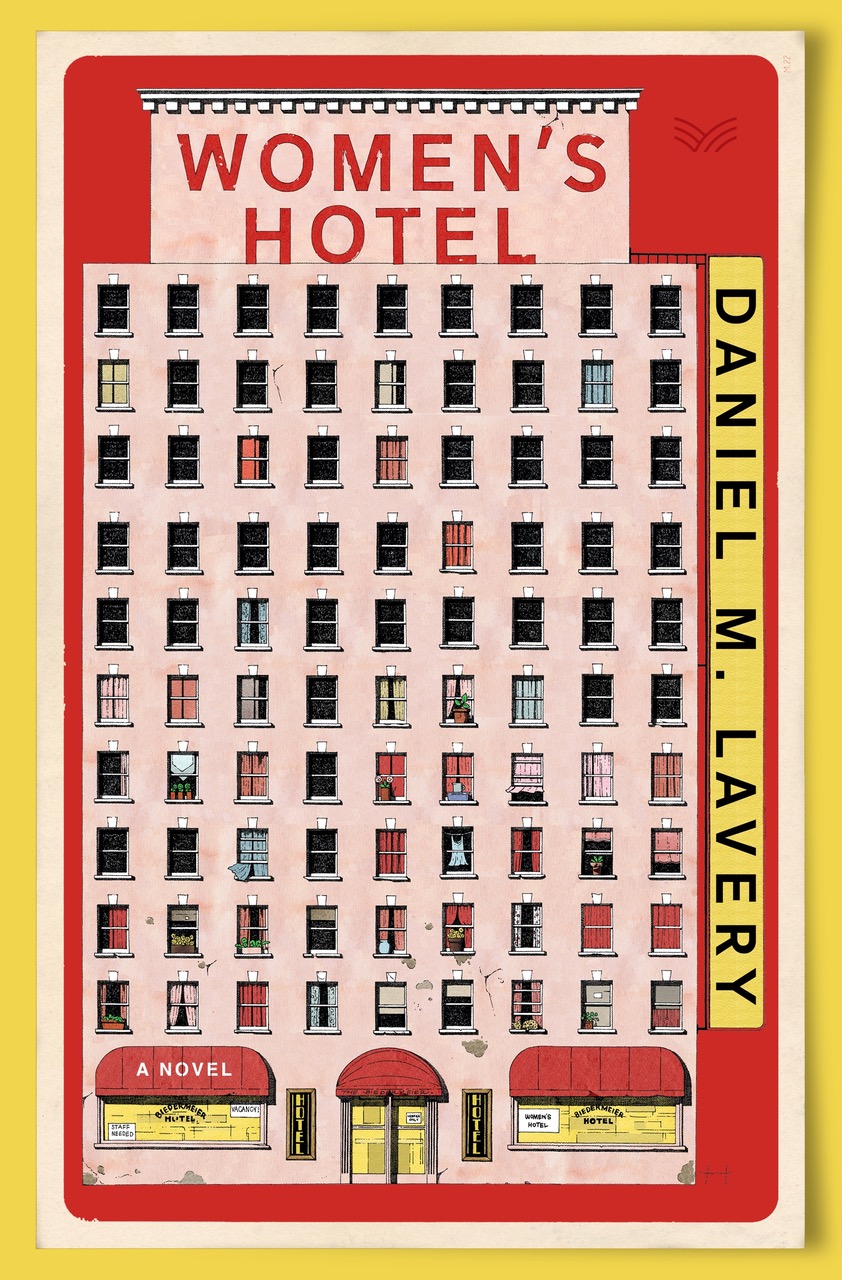 Like Austen, Women's Hotel focuses on traditional, domestic issues (changes to breakfast, dating, marriage, clothes), with economic precarity as a constant undercurrent. What role did women's hotels play in providing opportunities to women in the early stages of financial independence?
Like Austen, Women's Hotel focuses on traditional, domestic issues (changes to breakfast, dating, marriage, clothes), with economic precarity as a constant undercurrent. What role did women's hotels play in providing opportunities to women in the early stages of financial independence?
I wanted money and expenses to be present throughout the book. For these women, living in the city is affordable, but a lot of the social structures that would have underpinned their lifestyle in the '20s and '30s are no longer there. The guaranteed weekly rate of a Biedermeier room can help somebody hold on toward the end of something and enable others to jump up a little further; for others, they're treading water, just a step away from sliding downwards.
Being in a residential hotel removes you briefly from a recognizably domestic sphere, but you still have to know where you're going to get your meals, to figure out how to relate to the people around you, to decide what kind of relationship you're going to have to the marriage plot, and so I wanted there to be a sense of maybe I can get away from those sort of questions for a while, but they're not going anywhere. They're just outside the door.
Of the residents, Katherine is my undisputed favorite, especially due to the authenticity of her journey. Do you have a favorite? Was any character more delightful to write than the others?
I also have deep affection for Katherine. Her backstory took up more pages than I had originally anticipated, but I was really happy with it. In some ways, I think Gia might have been the most fun. It's like she was airlifted in from a totally different book! She knows what she wants, and everything goes exactly according to plan. She's like a Dale Carnegie character come to life! So that was quite a lot of fun. Similarly, I think Lucianne is a character who was a lot of fun, in part because she spends so much time with people she's also thinking about undermining. She likes them, but she's also just wondering about how to dress in such a way that will make her look better than Pauline or make Katherine look like a dead bird.
Yes! We know so much about Katherine, as you note, and with Gia, we get a few fairly intimate details but only as it relates to her particular project. That partial intimacy really works with the hotel setting, where some people become something of a fixture and others drop in and just as quickly drop out, known for little more than the way they look in the hallways--completely real and completely mysterious at the same time.
Gia is one of a handful of characters inspired by real people. She's loosely based on a writer named Joan Brady. Ten to 15 years ago, Brady wrote an essay called something like, "I married my mother's ex-lover, and I'm not sorry!" The basic outline was that her husband, writer Dexter Masters, had previously dated her mother, they didn't see each other for a decade, and then they connected in the city and hit it off. I took it in different places, making it Gia's goal the whole time, but I love that unapologetic Oedipal notion.
For Gia, if you're beautiful, you're a ballet dancer, you control your body perfectly, then you also control the world around you perfectly--it's the fantasy of somebody who really does get everything she wants. She says, I want to live with the man that I love and I want to die in the penthouse of an expensive hotel. So for her, her trajectory out of the women's hotel just takes her into a better hotel, which is very different from the other character who marries toward the end of the book. She moves in with her husband and mother-in-law, and for those left behind, there's a real sense of "we're losing you." With Gia you're taking this to its highest logical conclusion: you're going to live in the sky and have gold shoes.
What was your research process like?
For the first six months, I was at the New York Public Library every weekend doing research. I read archived newspaper and magazine articles, and a lot of books, deciding what kind of people I want to include, what kinds of movements or experiences would feel meaningful or important. For instance, Jimmy Breslin and the backdrop of the newspaper mergers, which we see in Lucianne's story. I had to verify details like when did the New York Horse Show move out of Manhattan? What types of restaurants were around the '50s and '60s (the NYC streets as well as the decades)? It's always possible to do more research, so at a certain point you just have to say what I know, I know, and I want to write something now. --Sara Beth West
Book Candy
Book Candy
Courtesy of the Guardian, 2024 Booker Prize shortlisted authors remember "The Moment Inspiration Struck."
---
Mental Floss tells the tale of "A Long-Lost Short Story by Dracula Author Bram Stoker [That] Has Been Rediscovered After 130 Years."
---
CrimeReads offers six "Thrillers Perfect for Winter" that were inspired by Agatha Christie's closed circle mystery And Then There Were None.
Rediscover
Rediscover: John Gierach
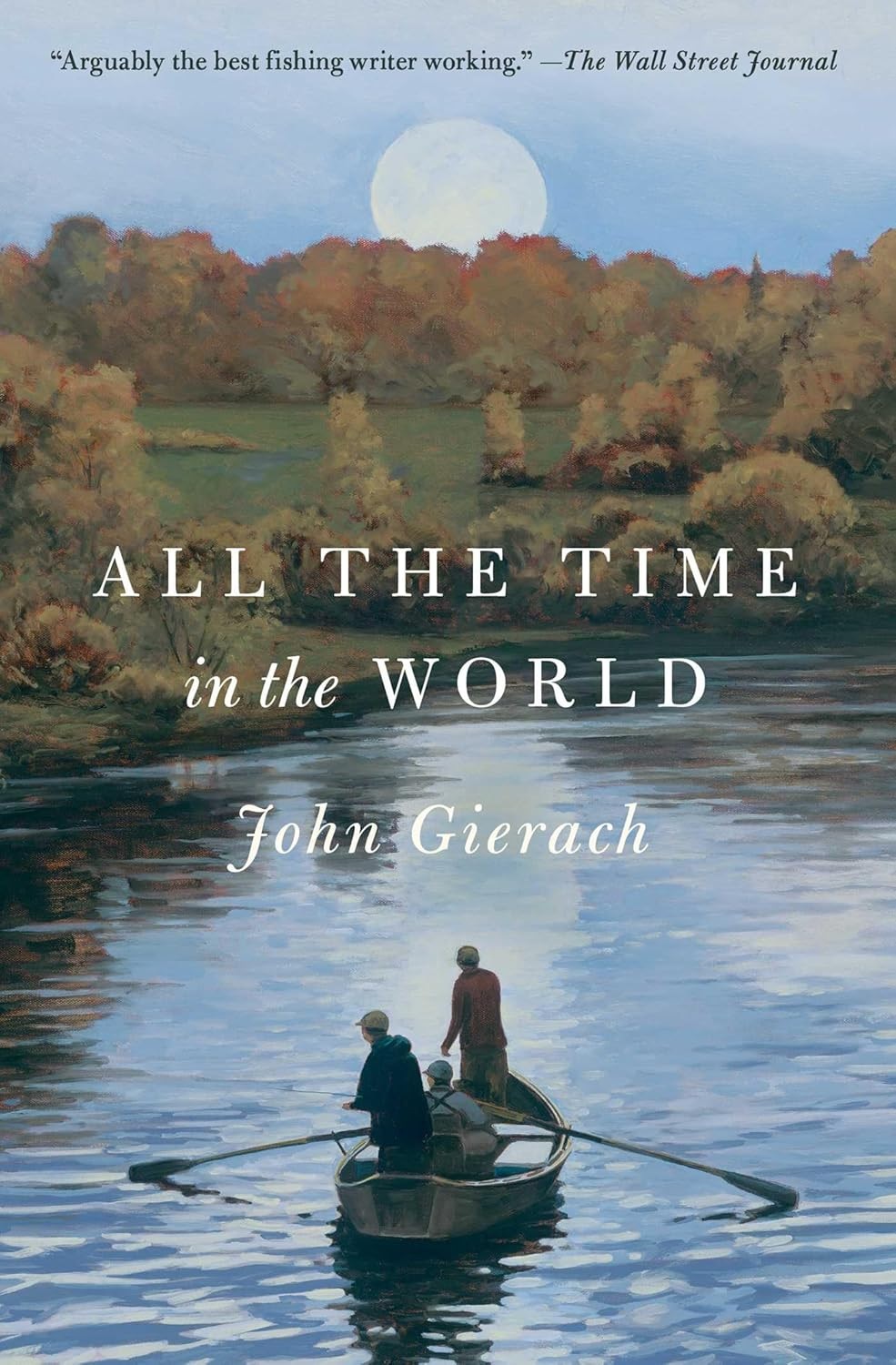 John Gierach, "beloved fly-fishing author and original 'trout bum,' " died October 3 at age 78, Fly Fisherman magazine reported. Gierach's "down-to-earth prose, easy-reading style, and serious-fishing-but-light-hearted approach endeared him to generations of anglers, and made him feel like everyone's fishing buddy," Fly Fisherman noted. "One of his titles, All the Time in the World, has sadly proven false."
John Gierach, "beloved fly-fishing author and original 'trout bum,' " died October 3 at age 78, Fly Fisherman magazine reported. Gierach's "down-to-earth prose, easy-reading style, and serious-fishing-but-light-hearted approach endeared him to generations of anglers, and made him feel like everyone's fishing buddy," Fly Fisherman noted. "One of his titles, All the Time in the World, has sadly proven false."
Gierach's many books include Trout Bum; All Fishermen Are Liars; Death, Taxes, and Leaky Waders; Sex, Death, and Fly Fishing; No Shortage of Good Days; Even Brook Trout Get the Blues; The View from Rat Lake; Still Life with Brook Trout; and Fool's Paradise.
"Some people seem timeless, until they're not," said longtime friend and fishing artist Bob White. "I imagine John is sitting in a wonderful coffee shop, perched over a river, surrounded by all the friendly dogs in the neighborhood. That'd be heaven for him."
In addition to his books, Gierach wrote countless magazine articles and columns for publications ranging from TROUT magazine to Sports Illustrated, the Wall Street Journal, and the New York Times. Starting in 1992, he wrote the back-page column for Fly Rod & Reel, with each piece illustrated by White. After the magazine folded in 2017, Gierach and White continued their writing and illustrating partnership at TROUT magazine.
Hatch magazine wrote: "For many, Gierach's was the voice they heard in their heads when they fished. His simple, yet thoughtful approach to fly fishing resonated with fly fishers all over the world. Through his books, articles and columns, he reached millions. Yet, within the tightly knit fly fishing community, Gierach was eminently approachable and, as his collaborator and friend White said on Friday, 'he was the same way in real life as he was in his writing.' "


